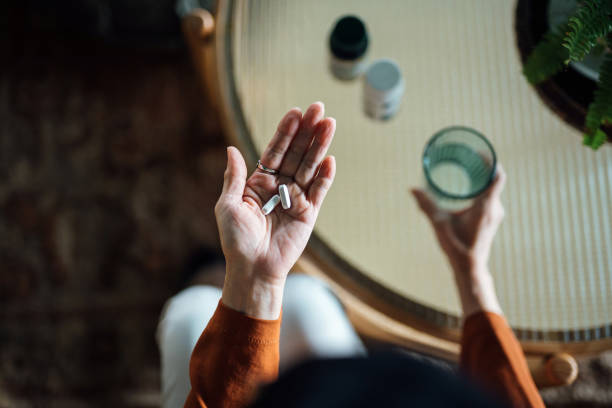How long do antibiotics stay in your system? This is a question that a lot of people are asking these days. With the rise of antibiotic-resistant bacteria, it is important to know how long antibiotics will be detectable in your body. In this blog post, we will discuss the various factors that affect how long antibiotics stay in your system. We will also provide some tips on how to clear them from your body as quickly as possible.
How Long Do Antibiotics Stay In Your Body?
Several factors can affect how long antibiotics remain in your system. These include the type of antibiotic, the dose, and how long you took the antibiotic. Other factors such as age, weight, and liver function can also play a role.
The half-life of an antibiotic is the time it takes for the concentration of the drug in your body to decrease by half. This is important because it tells us how long it will take for the drug to be cleared from your system. The half-lives of different antibiotics vary widely. For example, the half-life of azithromycin (Zithromax) is 68 hours. This means that it will take 68 hours for the concentration of azithromycin in your body to decrease by half. In contrast, the half-life of amoxicillin (Amoxil) is only 8 hours. This means that amoxicillin will be cleared from your system much more quickly than azithromycin.

What Are The Types Of Antibiotics?
There are many different types of antibiotics, and each one is specific for a certain type of infection. For example, some antibiotics are used to treat ear infections, chest infections, and urinary tract infections.
Risks Of Taking Two Doses Of Antibiotics
Taking two doses of antibiotics when only one is needed can be dangerous, leading to potential side effects. It can also lead to antibiotic resistance, making the bacteria more difficult to treat in the future. If you accidentally take two doses of antibiotics, call your doctor right away. They will likely tell you to stop taking the medication and may even give you a different antibiotic to help clear the infection.
Antibiotic Resistance
Antibiotic resistance is when bacteria become resistant to the effects of an antibiotic. This can happen when a person takes an antibiotic that does not kill all the bacteria it is supposed to. The surviving bacteria are then able to multiply and cause infection. Antibiotic resistance is a major problem because it means that infections that were once easily treatable with antibiotics may now be difficult or even impossible to treat.
If you are taking an antibiotic, there are a few things you can do to help clear it from your system as quickly as possible.
- First, make sure you take the full course of the antibiotic. It is important to finish all of the medication, even if you are feeling better. Stopping too soon could allow bacteria to develop resistance to the antibiotic.
- Second, drink plenty of fluids. This will help flush the drug out of your system.
- Finally, avoid alcohol while taking antibiotics. Alcohol can interact with some antibiotics and reduce their effectiveness.
Side effects of taking two doses of antibiotics include:
- diarrhea
- nausea
- vomiting
- rash
- headache
What Happens If You Already Are Antibiotic-Resistant?
If you have an infection that is resistant to antibiotics, there are a few things you can do.
- First, your doctor may prescribe a different antibiotic.
- Second, they may give you a higher dose of the antibiotic or recommend that you take it for a longer period of time.
- Finally, they may recommend other treatments such as surgery or antiviral medication. If you have an infection that is resistant to antibiotics, your doctor may prescribe a different antibiotic. Make sure to take the full course of the medication and drink plenty of fluids. Avoid alcohol while taking antibiotics.

When To See A Doctor If You Have An Infection
If you have an infection, it is important to see a doctor. This is because infections can cause serious complications if they are not treated properly. Infections can also be very contagious, so it is important to see a doctor as soon as possible to avoid spreading the infection to others.
There are a few situations when you should see a doctor for an infection, including:
1. If you have a fever of 100.4°F (38°C) or higher
2. If you have chills or sweats
3. If your wound is red, swollen, or draining pus
4. If you have a cough or shortness of breath
5. If you have diarrhea or vomiting
6. If you feel very tired
7. If you have a sore throat, headache, or body aches
8. If you have any other symptoms that are causing you concern
How Long Will You Need To Use Antibiotics For?
This is dependent on the sort of infection you have. You will generally need to take antibiotics for 7-10 days for most diseases. Some infections, on the other hand, might need a longer course of therapy.
Your doctor will inform you how long you must take the antibiotic. It’s critical to finish the complete prescription even if you feel better. Stealing can allow germs to stay alive and grow, which may lead to a relapse of your illness.
Things To Consider When Taking Antibiotics
There are a few things you should avoid when taking antibiotics, including drinking alcohol doses taking over-the-counter medications missing doses, and taking expired antibiotics. Taking these precautions will help ensure that your antibiotics are effective and be sure to contact your doctor and prevent further complications.
1. Do not skip doses or stop taking the medication early.
2. Do not take more than the prescribed dose.
3. Do not take antibiotics for viral infections, such as the common cold or flu.
4. Do not take antibiotics with alcohol or while pregnant.
5. Talk to your doctor before taking any other medications, including over-the-counter drugs and supplements.
6. Do not share your antibiotics with others.
7. Keep the medication in a cool, dry place out of reach of children and pets.
8. Dispose of unused medication properly according to your doctor’s instructions.
9. Wash your hands regularly and practice good hygiene to prevent the spread of infection.
10. See your doctor for follow-up appointments to make sure the infection is gone.
Conclusion
In conclusion, the half-life of an antibiotic is the best indicator of how long it will stay in your system. However, other factors such as age, weight, and liver function can also play a role. If you are concerned about how long an antibiotic will stay in your system, be sure to discuss this with your doctor or pharmacist. They can help you determine which antibiotic is right for you and how long it will stay in your system. Thank you for reading!
